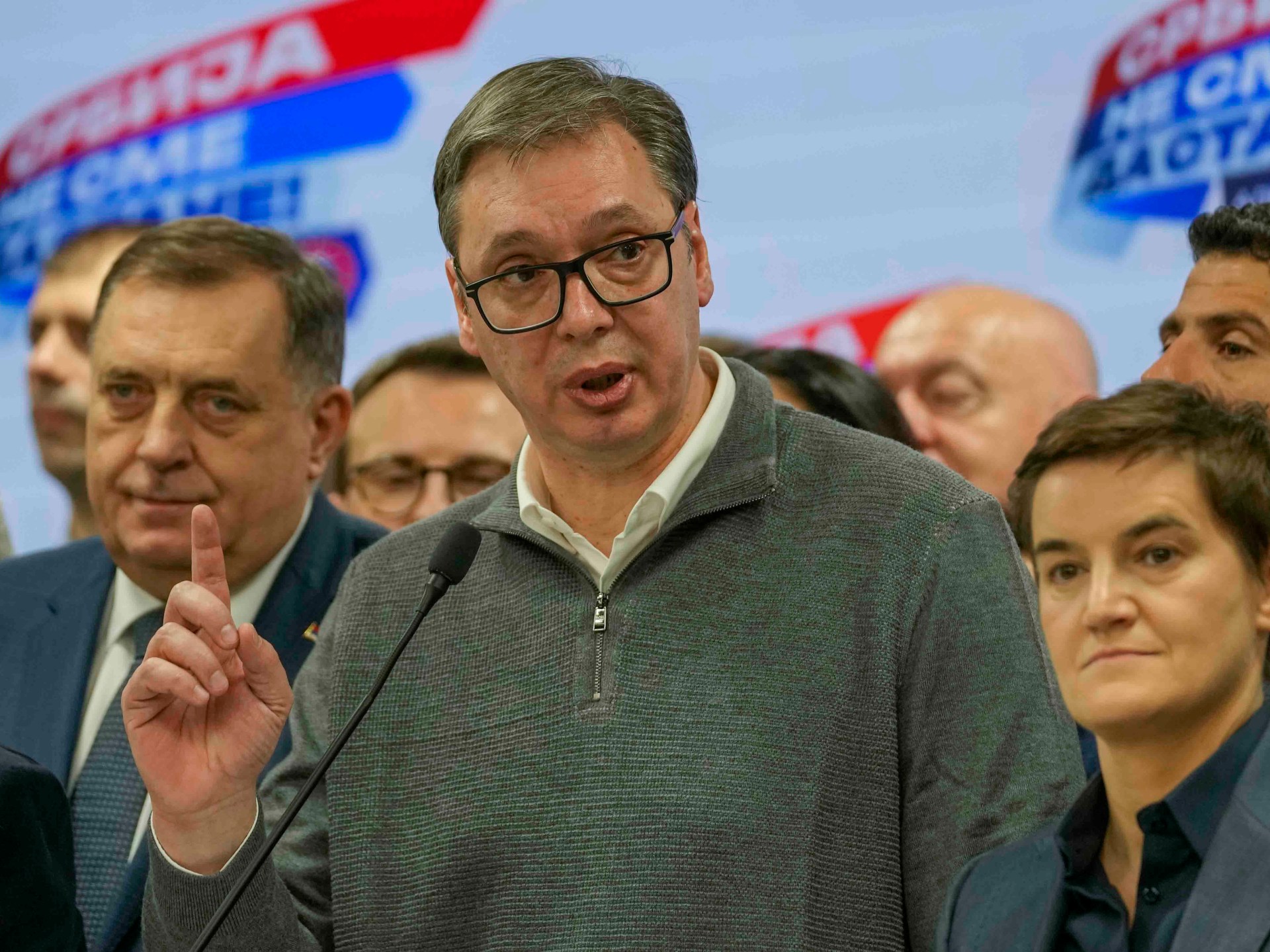
Analysis: Election ‘win’ for Serbia’s Vucic might yet backfire
Al Jazeera
As questions about the elections mount and protesters take to Belgrade’s streets, the president faces a rare challenge to his authority.
For 48 hours from Sunday night, the victory of Serbian President Aleksandar Vucic was total, overwhelming, sweeping, crushing. His ruling Serbian Progressive Party (SNS) had on its own secured a majority in the National Assembly with twice as many votes and seats as their closest opponent. It also swept the regional and municipal elections, winning councils in 165 cities and towns, including the capital, Belgrade. All other parties together claimed just nine cities and towns.
Vucic had won his second five-year term in 2022 by thrashing his closest competitor by 41 percentage points. As Sunday’s landslide was confirmed, the 53-year-old uncontested ruler of Serbia joined his ecstatic ministers, parliamentarians and supporters at party headquarters to claim the ultimate political achievement — dominating and winning elections in which he did not even run.
Initially, just one little speck of dust smudged his party’s accomplishment. Although the strongest party in municipal elections in the capital, the SNS ended up short of an outright majority.
Still, its leaders were confident that with their political experience and control of money, public contracts, lucrative jobs and board memberships in public companies, they would overcome that hindrance. They would need to persuade only six first-time councillors from a newly created movement led by a 69-year-old retired doctor to lend them support. In their 10 years in power, the Progressives have learned how to satisfy the human desires of people they need.
So they boasted, gloated, denigrated and belittled their opponents and teased and mocked their humiliated erstwhile coalition partners.
